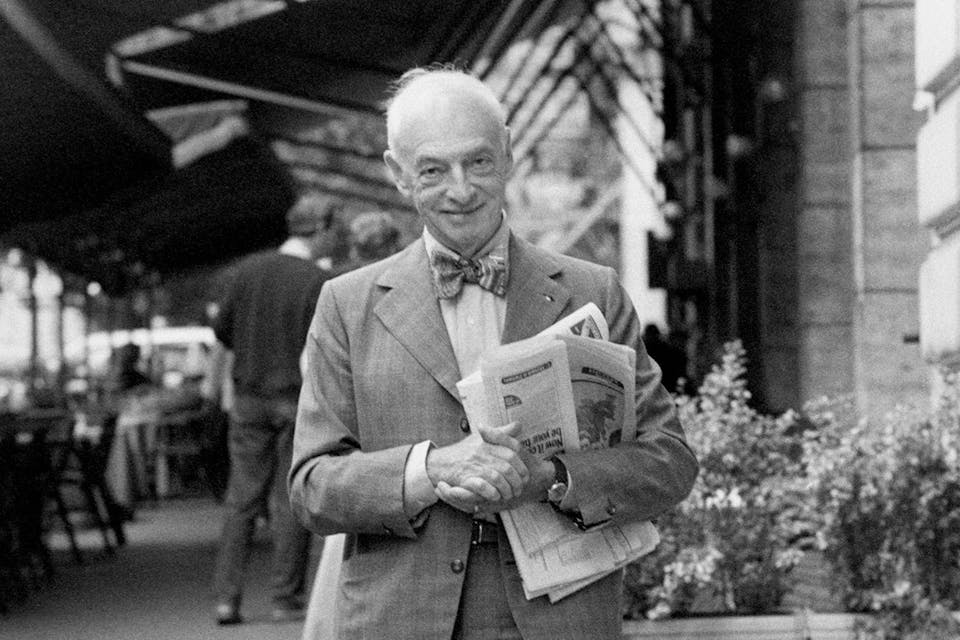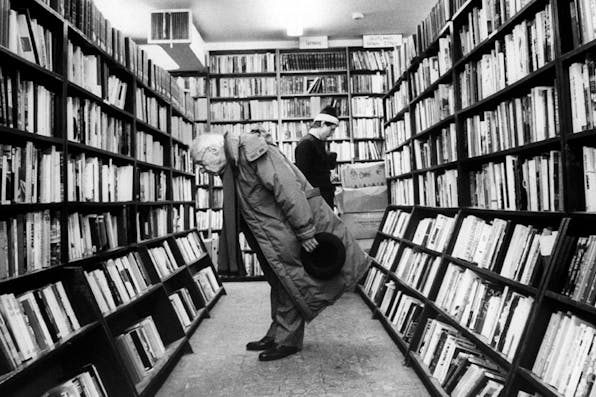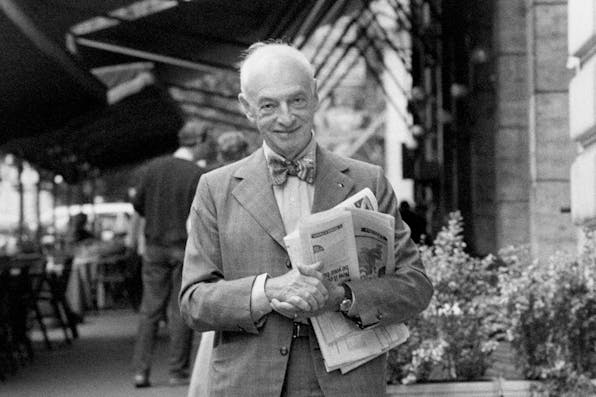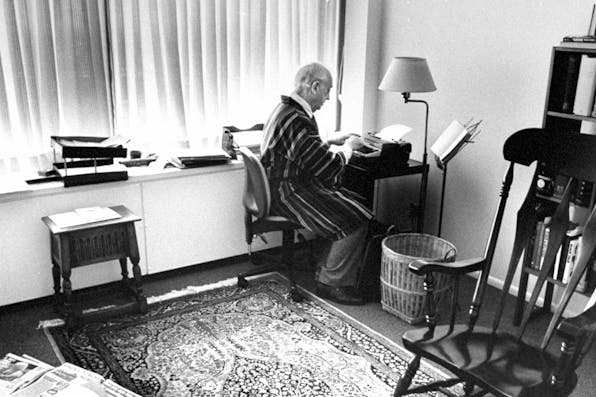
October 23, 2019
Why Bellow Was the Least Jewish Writer of the Golden Age of American Jewish Fiction
The great theme of his work is resistance to spiritual constraint, the soul’s freedom as the highest value.
Saul Bellow didn’t like the word “task” as applied to literature: “tasks are for people who work in offices,” he once cracked. Yet Ruth R. Wisse’s survey in Mosaic of Bellow’s achievement as an American Jewish novelist, “What Saul Bellow Saw,” shows that synthesizing those two parts of his identity, the American and the Jewish, was indeed a lifelong task, one that occupied his fiction from The Victim (1947) to Ravelstein (2000).
I don’t think Bellow ever did achieve that synthesis—which doesn’t necessarily mean he failed. Perhaps integrating Americanness and Jewishness is one of those responsibilities from which American Jews are not free to desist, even if they never manage to complete it.
Wisse’s closing image, of Bellow as a Jewish writer breathing life into the American soul, gives him almost godlike power. But as Cynthia Ozick has emphasized in her own work, there is something about this conception of the writer as Creator that is profoundly at odds with Judaism. Indeed, I think it’s possible that of the writers who along with Bellow created the golden age of American Jewish literature—prominently including Bernard Malamud, Philip Roth, and Ozick herself—Bellow yields least to interpretation through the lens of Jewishness.


